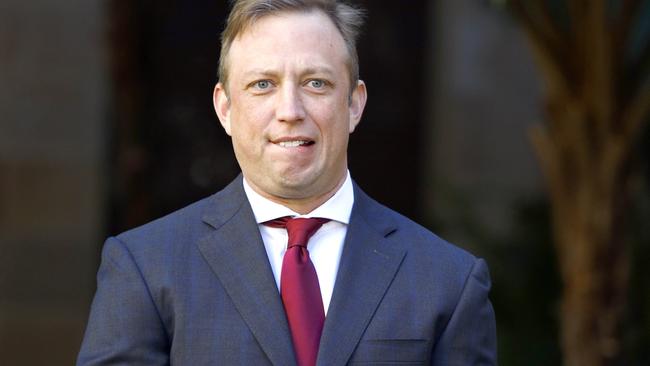Labor’s hard line threatens showdown on voluntary dying
Queensland Deputy Premier says church-run hospitals and nursing homes must allow voluntary euthanasia for some terminally ill patients.

Queensland Deputy Premier Steven Miles says church-run hospitals and nursing homes must allow voluntary euthanasia for terminally ill patients who can’t or won’t be moved, forcing a showdown with faith-based providers responsible for more than a fifth of the nation’s health care.
Mr Miles’ insistence that Australia’s latest Voluntary Assisted Dying (VAD) scheme will not offer a blanket right of institutional conscientious objection has outraged church leaders, who accused the government of reneging on its commitments.
Catholic Health Australia – which provides 10,000 hospital beds and 25,000 aged-care places across the country – said legislation now before Queensland parliament would “crush” conscientious objection. The Bill is certain to pass on the anticipated votes of Labor and Greens MPs.
“If you read the details of the Bill, it actually means that doctors can come in and out of our hospitals, perform this procedure on a patient … without asking us for permission or informing us this will happen,” said Rebecca Burdick Davies, CHA’s director of strategy and mission.
Mr Miles for the first time on Tuesday set out how VAD would impact faith-based care facilities in situations where a terminally ill patient wanting to die could not be moved from the premises or, in the case of aged-care residents, whose recognised place of residence was the nursing home.
While the legislation provided an institutional ability to object, with the patient required to be transferred to a facility that does offer VAD, this right could be overridden, Mr Miles said.
“In some situations, requiring an individual to leave their home and transfer to a different hospice, when they’re close to death and in great pain, would subject them to pain and distress or deny them access to voluntary assisted dying,” he told the Queensland Media Club. “It’s important the voluntary assisted dying scheme provides all Queenslanders who are suffering and dying with equal end-of-life choices, irrespective of where they live.”
A spokeswoman for Mr Miles told The Australian that any doctor or nurse practitioner who failed to refer on a patient requesting VAD would be reported to AHPRA, the medical accreditation body. But there was no penalty in the legislation put before parliament last month for non-compliant institutions.
A sleeper issue in the euthanasia rollout, the institutional right of conscientious objection has been aggressively pursued by faith-based care providers out of concern they would be forced to allow VAD on their premises.
It has come into sharper focus as the number of jurisdictions to introduce or enact VAD law mounts: Western Australia’s scheme becomes operational on July 1, while the legislation in the works in Queensland means that all states bar NSW will have a right-to-die law.
Catholic Archbishop of Brisbane Mark Coleridge said Mr Miles’ remarks were disappointing but not surprising.
“The Deputy Premier’s position in this debate is now clear. He may have carriage of the Bill, but we hope that the government can still see the need to respect the right of conscientious objection,” Dr Coleridge said.
The Bill has been referred to a parliamentary committee where the churches hope it can be amended in line with the recently-enacted laws in South Australia that enshrine the right of faith-based organisations to opt out.
Mr Miles said the application of conscientious objection was one of the most controversial parts of the legislation in attempting to balance the rights of institutions and individuals.
“I think we need to remember that these people are, in most cases, paying to live there, or the federal government is paying these institutions for them to live there. It is their home, they probably didn’t get much choice in where they ended up.”



To join the conversation, please log in. Don't have an account? Register
Join the conversation, you are commenting as Logout